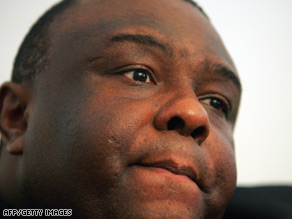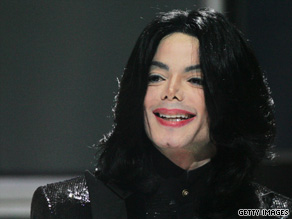Terrified civilians say a UN-backed military force is raping, looting and killing villagers at will, writes STEPHANIE MCCRUMMEN in Minova, Congo
A CONGOLESE military operation against Rwandan rebels who have caused years of conflict in eastern Congo is unleashing fresh horrors across this region’s rolling green hills.
The mission, backed logistically by UN peacekeepers and politically by the US, aims to disband the remaining 7,000 or so Rwandan Hutu rebels who fled into eastern Congo after the 1994 Rwandan genocide.
But since the operation began in January, villagers have recounted nightmarish stories that raise questions about whether the military action will ultimately cause more destruction than it prevents.
At least half a million people have fled a rebel campaign of village burnings and retaliatory killings, including a massacre of more than 100 people in which several civilians were decapitated. At the same time, people are also fleeing the advance of their own predatory army – a toxic mishmash of mostly unpaid, underfed, ill-trained former militiamen churned into the military after various peace deals.
According to an army spokesman, the deputy to the commander in charge of the operation is an ex-militia leader and wanted war crimes suspect known as the Terminator. Villagers say soldiers are killing people accused of collaborating with the rebels. And in scenes that recall the brutalities of Belgian colonial rule, commanders are forcing locals to carry supplies across the forest, killing those who collapse from exhaustion.
“Pastors, teachers, students, everyone must carry, and not for one day, for weeks,” said Kalinda Hangi, a former teacher who has filled a notebook with names of people killed by the rebels and the army in his area. “They make you build their tents, take water – if you don’t obey, they kill you.”
In its mission, the army is being supported by trucks, food, attack helicopters and other equipment provided by the UN peacekeepers, but the co-operation has spawned criticism.
Humanitarian workers say the operation has paralysed assistance to newly displaced persons, and a UN inter-agency committee last month described “a fundamental conflict” between the UN support of the army and the world body’s mandate to protect civilians.
“This operation is definitely doing more harm than good,” said Julien Attakla, who heads the UN human rights section in North Kivu province, where the operation has been centred. The rebels “have never been as dangerous to the population as they are now. And the Congolese army – what are the chances of them carrying out a successful operation? They are looting houses, looting farms, raping everywhere, using forced labour – that’s the real face of this operation.”
Diplomats from the UN, Europe, the US and especially from neighbouring Rwanda have pressured Congo for years to act against the Hutu rebels, who are known as the FDLR (Democratic Liberation Forces of Rwanda) and include leaders accused of helping organise Rwanda’s genocide.
Although they are no longer considered an immediate threat to the Rwandan government, the rebels have in the past collaborated with the Congolese army, sharing weapons and fighting against common enemies. The rebels have set up parallel administrations in many areas, preying on villagers and controlling much of the region’s lucrative mineral trade.
Their presence has prompted Rwanda to invade Congo twice, and to back two Congolese rebel movements, fuelling a complex conflict that has become the deadliest since the second World War.
By some estimates, the fighting and related turmoil have left at least five million people dead over the past decade.
US and UN officials say the operation – initially supported by thousands of Rwandan soldiers – is a crucial part of a wider political and economic deal to mend the destructive relationship between Rwanda and Congo, and to return stability to Congo’s long-suffering east. They say the operation has forced hundreds of rebels to desert and has disrupted their command and weakened their hold on the mineral trade, though analysts dispute the latter two gains.
Top UN officials say that if they were not co-operating with the army, human rights abuses would be worse.
“We’ve been mandated to support this army, and we are trying to the best of our ability to improve their performance and protect civilians,” said Hiroute Guebre Sellassie, head of the UN office in North Kivu province.
Still, there have been dozens of rebel attacks since the operation began, many advertised in advance by rebels who have left leaflets in villages promising death to anyone who helps the army.
The most brutal attack came last month in the village of Busurungi, where at least 100 people were massacred, according to several survivors.
The army had taken up position in the formerly rebel-held village, but most of the soldiers had moved on by the time the rebels arrived one night. A few militiamen tried to fight back, but ran out of ammunition.
“They called us civilians and said, ‘Our bullets are finished, try to run’,” said Angelus Bahavu, secretary to a traditional king in the area.
As he ran, he saw rebels force screaming women and children back into their huts, which they set on fire. Rebels guarded the doors to prevent anyone from escaping, he and others said. The rebels slammed babies against trees, and people fleeing were killed with arrows, machetes and guns.
In a tactic aimed at terrorising those who might co-operate with the army, rebels decapitated several people, whose heads were then placed on tree branches planted at the entrance to the village.
“They told people, ‘You are bringing these troops to hunt us, now we will hunt you’,” said Bahavu, who eventually made his way to a sprawling camp of banana-leaf huts. – ( LA Times-Washington Post )
This article appears in the print edition of the Irish Times




























